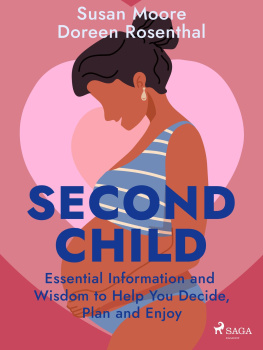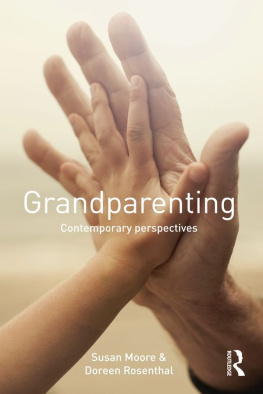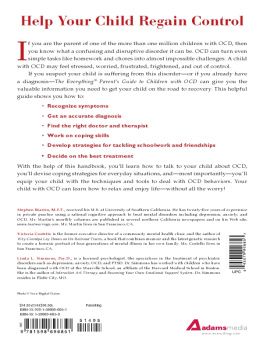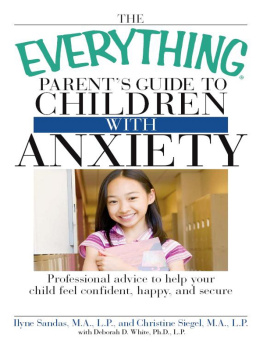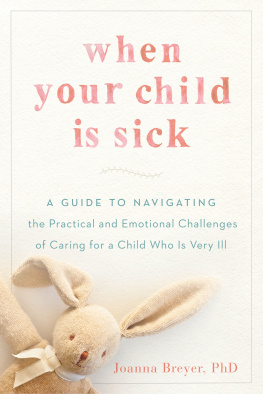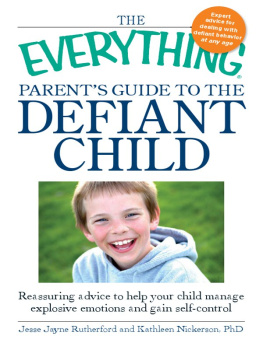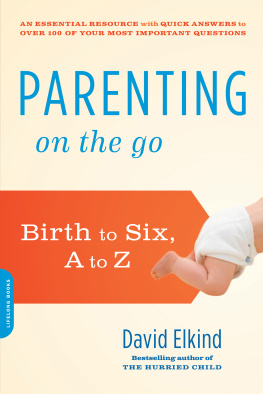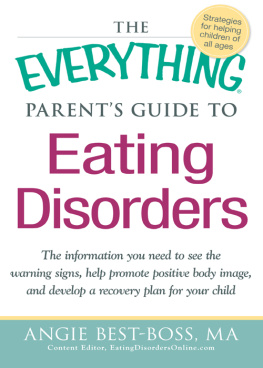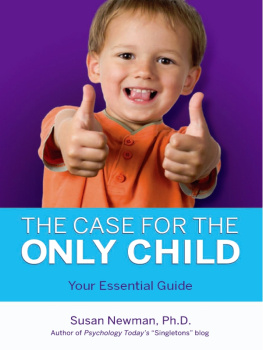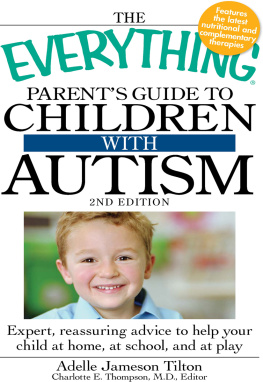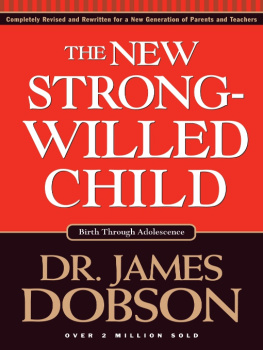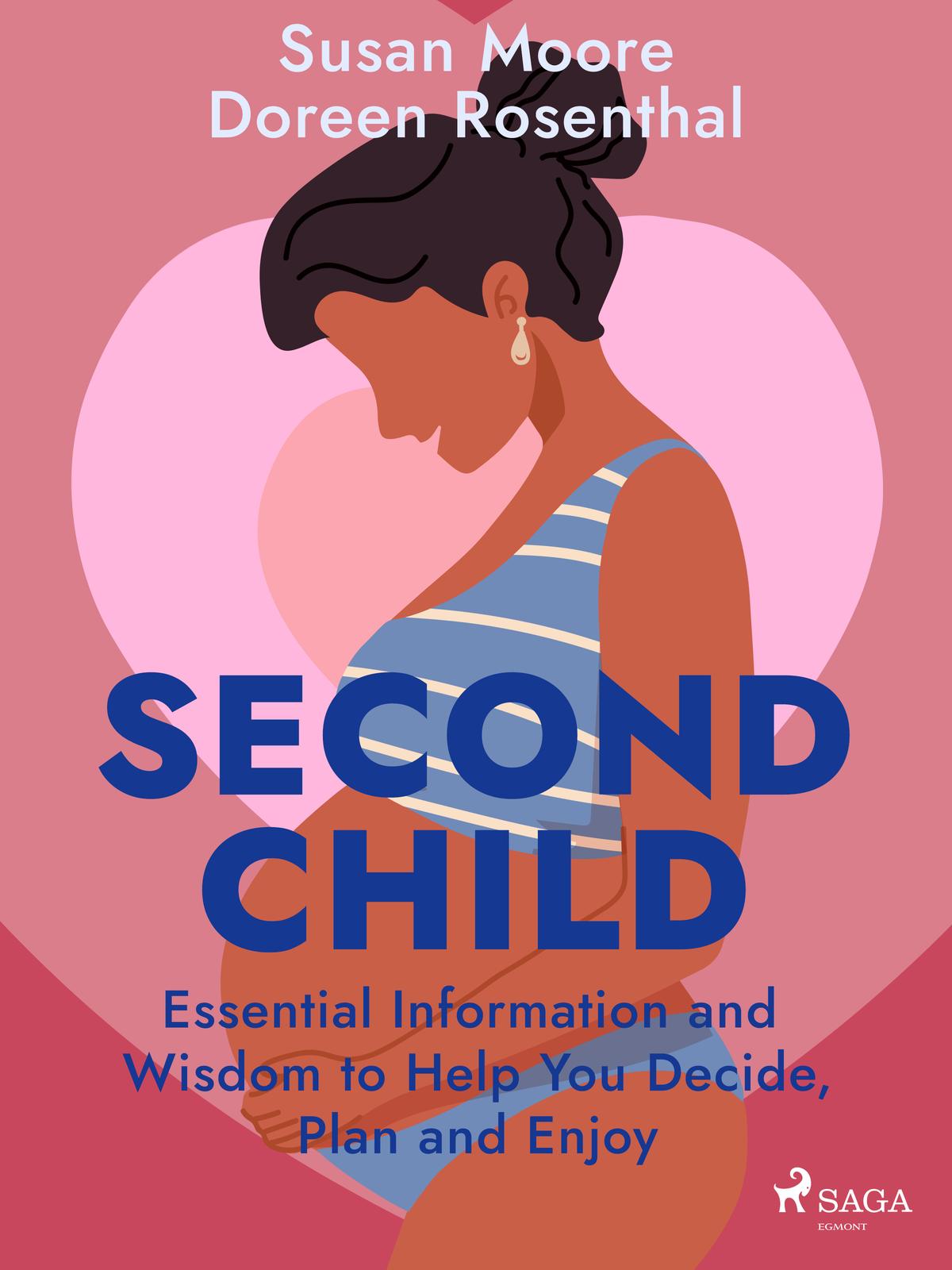
Second Child: Essential Information and Wisdom to Help You Decide, Plan and Enjoy
Cover image: Shutterstock
Copyright 2019, 2022 Susan Moore, Doreen Rosenthal and SAGA Egmont
All rights reserved
ISBN: 9788728277034
1st ebook edition
Format: EPUB 3.0
No part of this publication may be reproduced, stored in a retrievial system, or transmitted, in any form or by any means without the prior written permission of the publisher, nor, be otherwise circulated in any form of binding or cover other than in which it is published and without a similar condition being imposed on the subsequent purchaser.
www.sagaegmont.com
Saga is a subsidiary of Egmont. Egmont is Denmarks largest media company and fully owned by the Egmont Foundation, which donates almost 13,4 million euros annually to children in difficult circumstances.
For our siblings, Bruce, Lainie, and Penny
The fact is that child rearing is a long, hard job, the rewards are not always obvious, the work is often undervalued, and parents are just as human and almost as vulnerable as their children.
Dr Robert Needleman
Quick Tip Boxes
| What if your partner doesnt want a second child?..25 |
| Deciding whether to have another baby..46 |
| Probably NOT good reasons to have a second child46 |
| Are you worried about post-natal depression?.62 |
| Is it worth going to antenatal classes the second time around?72 |
| Foods to avoid during pregnancy74 |
| More things to be cautious about during pregnancy81 |
| Leaving the house: Krickets story.89 |
| Sleeping patterns and disruptions91 |
| Sleep tips for mums94 |
| Keeping your partner relationship strong in stressful times.99 |
| Guilt-reduced parenting..113 |
| Helping your children get on well135 |
| The green-eyed monster148 |
| Gender and favouritism153 |
Loving a baby is a circular business, a kind of feedback loop. The more you give the more you get and the more you get the more you feel like giving.
Penelope Leach
Acknowledgements
W e are grateful to all those who told us about their experiences of being a first- or a second-born child or the parent of one. Their real life stories have complemented and add a human touch to the outcomes reported by researchers and enriched this book. We're especially grateful to Kricket for her multitasking story.
Thanks to Alex Poll for her on-going assistance with our research. Thanks also to our respective institutions (the Department of Psychological Sciences, Faculty of Health Arts and Design, Swinburne University of Technology and the Centre for Womens Health, Gender and Society, Melbourne School of Population Health, The University of Melbourne) for their research and infrastructure support.
We thank our publisher for continuing support and encouragement and our husbands for being such positive enablers of our continuing writing activities.
Id love another baby but weve just got our two year-old to a point where hes starting to become human instead of feral. Could I manage two?
My three-year old was a dream baby; she was such a good feeder and amazingly, she slept through the night from three months. Of course well try again!
Chapter 1
Thinking about a second child?
C an anything be more joyful than the birth of a healthy baby? Youve experienced the bliss of holding that tiny bundle in your arms once already, why not do it again? If you are reading this book, its likely that youre at least thinking about having a second child, even if you havent entirely made up your mind yet. What are the pros and cons of taking the plunge?
On the positive side, maybe youre hoping to provide a companion for child number one, and the joy of an extended family. If you didnt have siblings yourself, perhaps you feel youve missed out on something special. Maybe youre feeling that pull to the heartstrings that babies provide; you want to experience that love again and enrich your family by doing so.
Whats holding you back? You could be worried about the extra costs, the workload, or the interruptions to your career. There may be anxiety about whether the child will be healthy with an easy temperament, and whether a new arrival might cause family upheaval especially with your little prince or princess, child number one.
Perhaps your thoughts are difficult to put into words it might be more about hormones than reasons. The desire to have children is a natural part of the human condition, but we live in an age where we have some control over how far nature will lead us.
If you need some help in making the decision, or if youve already made it (or fate has intervened to make it for you), and youd like guidance on how to survive, thrive, and enjoy your family of four, this is the book for you.
Our focus is on all those things that you might be thinking about as a parent:
- how to make the decision about whether youll have another child (especially if you and your partner disagree)
- getting yourself and your household ready for a new baby
- managing with two children instead of one
- maintaining good relationships with your partner in those stressful early months
- preparing your first child for the arrival of a brother or sister
- parenting in ways that encourage good sibling relationships
- coping with sibling jealousies and rivalries
- and lots more
Sometimes it can all sound rather daunting. One mother tweeting about the first couple of months with a new baby, reminded us about reflux, feeding challenges, and sleep deprivation, not to mention dealing with the emotional turmoil of a first born toddler coping with a new world order, in which he is no longer the sole focus of his parents attention. But this mum was heartened by comments from other parents, reminding her to hang in there, this stage doesnt last forever and calmer times are to come. Not only that, it is a special time with your new baby to stop and sniff her little head, stare into her eyes, cuddle her and enjoy the middle of the night feeds because before you know it they are teenagers.
In writing about how to plan and manage your second child, we have presented you with the latest psychological research and the opinions of child development experts, but weve also listened to mothers, fathers, sisters and brothers. In interviews and through so many parenting websites, theyve told us what its like to be a second-time around parent, a first-born or a second-born child. Theyve given voices to the research as they express the pleasures and pains of dealing with families, juggling the needs of others while keeping their heads above water, learning to multitask and keep smiling.
And finally trigger warning - weve brought our own experiences to bear as well, not only as psychologists, mothers and grandmothers, but also as typical firstborns. Perhaps it means we are a little bossy and maybe a little biased as well, having both been usurped by our younger siblings, many, many years ago! On the other hand, we have both been incredibly enriched by having siblings and find it difficult to imagine life without them. Imagine the extra pressures and expectations our parents would have put on us if they hadnt been distracted by the younger ones! And how would we have coped with no-one in the family to tease and lord it over? Just joking (perhaps).

